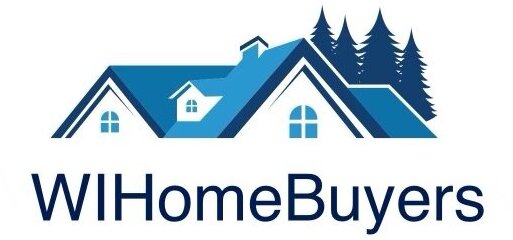When most people think about real estate investing, they picture owning rental properties, flipping houses, or building developments. But there’s another strategy that can be just as powerful—especially for new investors or those looking to grow their network and capital quickly. It’s called wholesaling.
Wholesaling real estate has gained traction in recent years because it allows investors to profit from real estate transactions without owning or renovating the property. For investors in Wisconsin, where housing markets range from hot metro areas like Green Bay and Appleton to smaller towns with solid rental demand, wholesaling can be a practical, lower-risk way to build wealth and experience.
What Is Wholesaling in Real Estate?
In simple terms, wholesaling involves finding a property—usually one that’s undervalued or needs some work—negotiating a purchase contract with the seller, and then assigning that contract to another buyer (often a rehabber or landlord) for a fee.
Let’s break that down:
- Find a motivated seller. This could be a homeowner facing foreclosure, a landlord tired of managing tenants, or an estate looking to liquidate quickly.
- Negotiate a deal. The wholesaler puts the property under contract, typically below market value.
- Assign the contract. Instead of buying the property outright, the wholesaler sells the right to purchase it to another investor.
- Collect a fee. The difference between the contract price and what the end buyer agrees to pay becomes the wholesaler’s profit.
The wholesaler never owns the property—just the rights to the deal. This makes wholesaling a fast, creative, and capital-light way to profit from real estate.
Why Wholesaling Appeals to Investors
1. Low capital requirement.
You don’t need a large down payment or a great credit score to get started. Since you’re not actually closing on the property, you avoid financing costs, renovations, and holding expenses.
2. Quick turnaround.
Unlike a long-term rental or flip, wholesale deals can close in weeks rather than months. This means faster returns and more frequent opportunities to earn income.
3. Networking power.
Wholesalers naturally build strong relationships with both sides of the transaction—motivated sellers and active buyers. Over time, this network becomes invaluable, opening doors to future partnerships, private funding, or even direct investments.
4. Market knowledge.
Wholesaling requires sharp deal analysis skills—understanding property values, repair costs, and investor expectations. Learning to evaluate deals quickly helps wholesalers develop the same instincts that top investors use to spot opportunities.
What Makes a Good Wholesale Deal?
A successful wholesale deal starts with buying right. The key is finding properties priced low enough to leave room for your buyer to make a profit after renovations or resale.
Most investors use the 70% rule as a guideline. That means the end buyer will typically pay about 70% of the property’s after-repair value (ARV) minus the cost of needed repairs. For example:
- After-repair value (ARV): $200,000
- Estimated repairs: $30,000
- 70% of ARV = $140,000
- Buyer’s maximum price = $140,000 – $30,000 = $110,000
If you negotiate the property for $100,000, you could assign it to the buyer for $110,000 and earn a $10,000 wholesale fee—without ever owning the home.
Legal and Ethical Considerations
Wholesaling is legal in Wisconsin, but it’s important to operate transparently and ethically. Always disclose your intent to both parties and use proper contracts that comply with state law. Some states require a real estate license if you’re marketing properties rather than your purchase contract, so it’s wise to consult with a local real estate attorney or broker familiar with wholesale transactions.
Avoid overpromising or misrepresenting your role in the deal. Reputable wholesalers thrive on repeat business and trust—both of which depend on professionalism and honesty.
Challenges to Expect
While wholesaling can be lucrative, it’s not effortless. The hardest parts are:
- Finding quality leads. Motivated sellers don’t always advertise themselves, so consistent marketing—like direct mail, online ads, or networking—is key.
- Building a buyers list. A strong network of active investors ensures your deals move quickly.
- Accurate deal analysis. Overestimating value or underestimating repairs can turn a great deal into a dud.
Success in wholesaling comes from discipline, persistence, and treating it like a real business—not a side hustle.
The Bottom Line
Wholesaling is one of the most accessible entry points into real estate investing. It’s ideal for beginners who want to learn the ropes, as well as experienced investors looking to generate quick cash flow between larger projects.
In Wisconsin’s diverse housing market—where values, demand, and competition vary greatly by city—wholesaling gives investors the flexibility to capitalize on opportunities wherever they find them. Whether your goal is to build capital for future flips, expand your rental portfolio, or make real estate your full-time business, wholesaling can be the first stepping stone toward lasting success.
Looking to sell your home? Contact WI Home Buyers at 920-360-1252!
